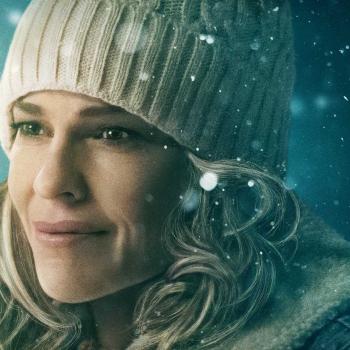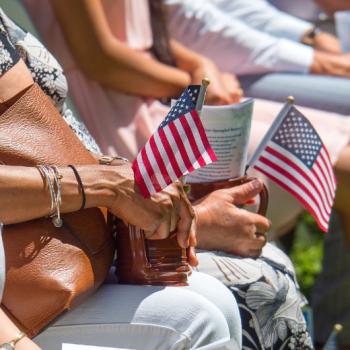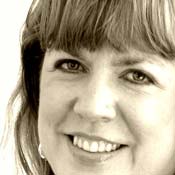Don't surrender your loneliness so quickly.
Let it cut more deep.
Let it ferment and season you as few human
Or even divine ingredients can.
Something missing in my heart tonight
Has made my eyes so soft,
My voice so tender,
My need of God
Absolutely clear. ~ Hafiz
Holy Week invites us into a world full of betrayal, abandonment, mockery, violence, and ultimately death. The Triduum, those three sacred days which constitute one unfolding liturgy, call us to experience communion, loss, and the border spaces of unknowing. Holy Saturday is an invitation to make a conscious passage through the liminal realm of in-between.
I love the wide space of Holy Saturday that lingers between the suffering and death of Jesus on Friday and the vigil Saturday night proclaiming the return of the Easter fire. For me, Holy Saturday evokes much about the human condition—the ways we are called to let go of things or people, identities or securities and then wonder what will rise up out of the ashes of our lives. The suffering that we experience because of pain or grief or great sorrow and we don't know if we will ever grasp joy again. Much of our lives rest in that space between loss and hope. Our lives are full of Holy Saturday experiences.
In their book The Last Week: What the Gospels Really Teach About Jesus's Final Days in Jerusalem, Marcus Borg and John Dominic Crossan write:
Easter completes the archetypal pattern at the center of the Christian life: death and resurrection, crucifixion and vindication. Both parts of this pattern are essential: death and resurrection, crucifixion and vindication. When one is emphasized over the other distortion is the result. The two must be affirmed equally.
Before we rush to resurrection we must dwell fully in the space of unknowing, of holding death and life in tension with each other, to experience that liminal place so that we become familiar with its landscape and one day might accompany others who find themselves there and similarly disoriented. The wisdom of the Triduum is that we must be fully present to both the starkness of Friday and to the Saturday space between, before we can really experience the resurrection. We must know the terrible experience of loss wrought again and again in our world so that when the promise of new life dawns we can let it enter into us fully in the space carved by loss. As the great poet of Hafiz reminds us, we must let our loneliness "cut more deep" and "season" us, so that we are reminded of our absolute dependence on the Source of all.
When I moved to the Pacific Northwest nine years ago I fell in love with trails that run along the border spaces between forest and ocean. Walking these paths is like walking along the edges where two wild places meet, and in that space I encounter the wilderness within me. This landscape of earth and sea pressed against each other, wild against wild, speaks to something deep within me—that place where God's voice often whispers and sometimes roars. It reflects the landscape of my soul in a way that no other place yet has and I somehow feel very much at home in this place of edges. We often try to domesticate God and to make spirituality about happiness or feeling good. We try and tie things up in neat packages. The spiritual journey is about none of these. It demands something of us and calls us to stand in uncomfortable places while the deserts of our lives strip away ego and power and identity. It calls us to embrace the God of wild borderlands.
This Lent has been in part for me about dwelling in the border spaces of my life and recognizing those places and experiences that do not offer me easy answers, those fierce edges of life where things are not as clear-cut as I hope for them to be. There is beauty in the border spaces, those places of ambiguity and mystery. In Esther de Waal's rich little book To Pause at the Threshold: Reflections on Living on the Border, she writes that the ability to live with uncertainty requires courage and the need to ask questions over finding answers. I am called to hold the space for mystery within me.
In Living on the Border of the Holy: Renewing the Priesthood of All![]() , William Countryman writes that this border country is one we all carry within us. There is a fault line running down the middle of our lives that connects our ordinary reality with its deeper roots. The border country, he argues, is what gives our lives meaning:
, William Countryman writes that this border country is one we all carry within us. There is a fault line running down the middle of our lives that connects our ordinary reality with its deeper roots. The border country, he argues, is what gives our lives meaning:





